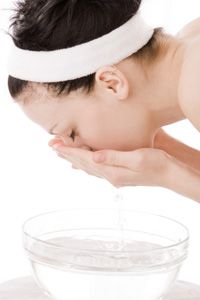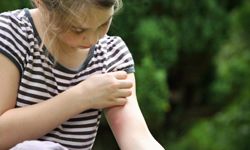It's an unpleasant irony when a skin cleanser you purchased to improve your appearance makes your skin red and blotchy. Not only do you look worse, but that cleanser has also made your skin itch and burn. And while you may think that allergic reactions happen with new products only, they can even occur with cleansers you've used and trusted for years.
But there are ways to prevent these reactions to skin cleansers and keep your skin healthy and happy. Keep reading to learn about the most common causes of an allergic reaction, what to do if you have one and how to keep it from happening in the first place.
Advertisement
About cosmetic allergies
Fragrance is the most common allergen in skin cleansers and other cosmetics, and preservatives are the second most common. What are allergens? First, you need to know about antigens, which are normally harmless substances that trigger genetically predisposed people's immune systems to produce antibodies. Allergens are antigens that cause an allergic person to create a certain type of antibody, called immunoglobulin E. The allergic person doesn't notice any symptoms at first because this antibody coats certain cells and lies in wait for subsequent exposure to the allergen. Then, when the allergen comes into contact with the body again, the cells release chemicals, including histamine, the cause of most allergic suffering.
Contact dermatitis and irritant contact dermatitis
Don't confuse allergic contact dermatitis with irritant contact dermatitis -- irritant contact dermatitis doesn't involve the immune system. You can have a reaction to an irritant the first time you use a product, but it takes repeated exposure to build up to allergic contact dermatitis. In general, you can assume it's an allergy if you haven't introduced a new product into your beauty routine. People with dry skin are more prone to irritant contact dermatitis, and the most common irritant is water, an ingredient in many cosmetic products.
The symptoms of allergic contact dermatitis include skin redness, itching, scaling and hives. The first step in treatment is to discontinue using all skin products until the condition heals -- your doctor may prescribe a cortisone ointment to be used for one to two weeks. After the symptoms disappear, you can begin reintroducing products until the one that caused the reaction is discovered.
How you can prevent allergic reactions?
Reading the label is the first line of defense in preventing allergies from skin cleansers. Look for the words "fragrance free." The term "unscented" doesn't necessarily mean the product is free of fragrance -- a scent might have been added to mask chemical odors.
If you know you're susceptible to allergies, you may want to ask your physician about a patch test. In a patch test, small samples of various allergens are applied to the skin, and the doctor notes which ones cause allergic reactions. You can also order at-home patch tests on the Internet.
For more information on cosmetic allergies and how to treat them, see the links on the following page.
Advertisement


